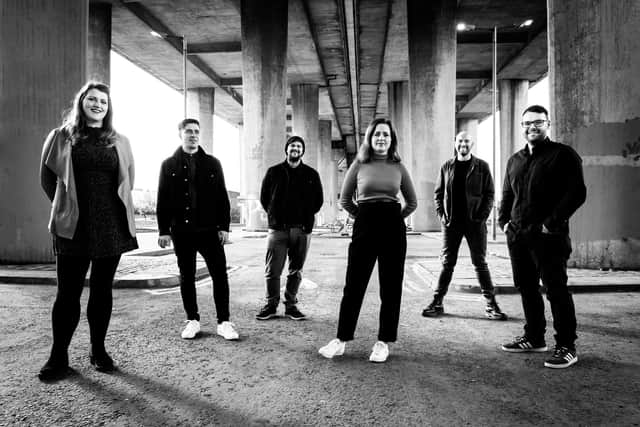Edinburgh International Festival interview: electro-folk voyagers Niteworks on their climactic show Comann
Pipe tunes, Gaelic songs and other traditional music swathed in electronic beats, pulses and sweeping cinematic soundscapes: such is the stock in trade of Niteworks, the quartet, originally from the Isle of Skye, who will host the closing night of Edinburgh International Festival’s Leith Theatre concert series.
They’ve titled the event Comann, which in Gaelic suggests community or fellowship, and they’ve curated it as a very contemporary showcase of Gaelic music and its connections. Joining them will be the Gaelic vocal trio Sian (who made an impression at the 2021 Festival’s Great Disordered Heart traditional music programme), as well as rising young singer-songwriter Beth Malcolm and string players from Scottish Album of the Year nominees the Kinnaris Quintet.
“Comann can be a hard word to translate,” explains Niteworks’ drummer, Ruairidh Graham, “but it is around words like community, fellowship, like An Comunn Gàidhealach, the association that puts on the Mòd and things like that. Community is how we like to look at it – our record label is called Comann Music. We’ve always liked the concept of that kind of association, I think it speaks to the music we do and the fact that we work with so many people in the Gaelic world. So it’s not just about us but about us trying to highlight Gaelic music and culture, working in association – or an comann – with lots of different singers.”


Their current album, A’ Ghrian (“Sun”) follows that policy, featuring as guests the Sian trio, Hannah Rarity, Beth Malcolm and Kathleen MacInnes, as well as fellow electro-Gaelic fusioneer Alasdair Whyte.
Along with Graham on drums, the core line-up of Niteworks is Innes Strachan on keyboards and synthesisers, Chris Nicolson on bass and Allan MacDonald on pipes, the last two also working with synthesisers. All four are originally from Gaelic-speaking musical backgrounds on Skye. “Myself and the keys player Innes, we’ve been pals since we were toddlers, from Breakish at the south end of Skye,” says Graham. “Then the other two, Allan and Chris, are from Braes outside Portree and also grew up together and went to primary school. Then we all met at high school and music classes.
“We all went through the Fèisean movement and all our families have music in them. My mother is a Gaelic singing teacher and Innes’s mum’s a music teacher while Chris’s dad plays accordion.” Allan MacDonald’s father, meanwhile, is Dr Angus, one of the three famed MacDonald piping brothers from Glenuig.
Like so many young people from the islands, on leaving school the four responded to the gravitational pull of Glasgow: “And in Glasgow, of course, there’s clubs and dance music, so it was a bit of a voyage of discovery.”
Graham is well aware that they weren’t the first to experiment with combining traditional and electronic music, acknowledging such earlier ground-breaking fusion pioneers as Martyn Bennett and Paul Mounsey as well as acid-crofters the Peatbog Faeries who, being from their home Isle of Skye were a big influence, he adds.
“But as the story goes,” he continues, “in Glasgow we bought a synthesiser one day and started to play around with it and that led to more money being invested in bigger and clunkier synths, then it just kind of gravitated, bit by bit, towards the music that we play now.”
And that music inherently involves collaboration with other artists. “We look around us because there’s so much potential to be gained from crossing different genres of music. That fusion thing crosses over to a whole cross-section of audience as well, so you’ll get people who know our music anyway and you’ll get people who may well have never encountered a Gaelic song before.
Some of the songs they perform, Graham points out, are pretty venerable, dating as far back as the 17th and 18th centuries, and would be unfamiliar to all except a small niche section of even a Gaelic audience. “Not that we ever sat down and said that this was what we were aiming for. But it’s definitely a happy side effect of our music that it engages a wider audience with Gaelic culture, which is great.”
Niteworks: Comann, Leith Theatre, 28 August